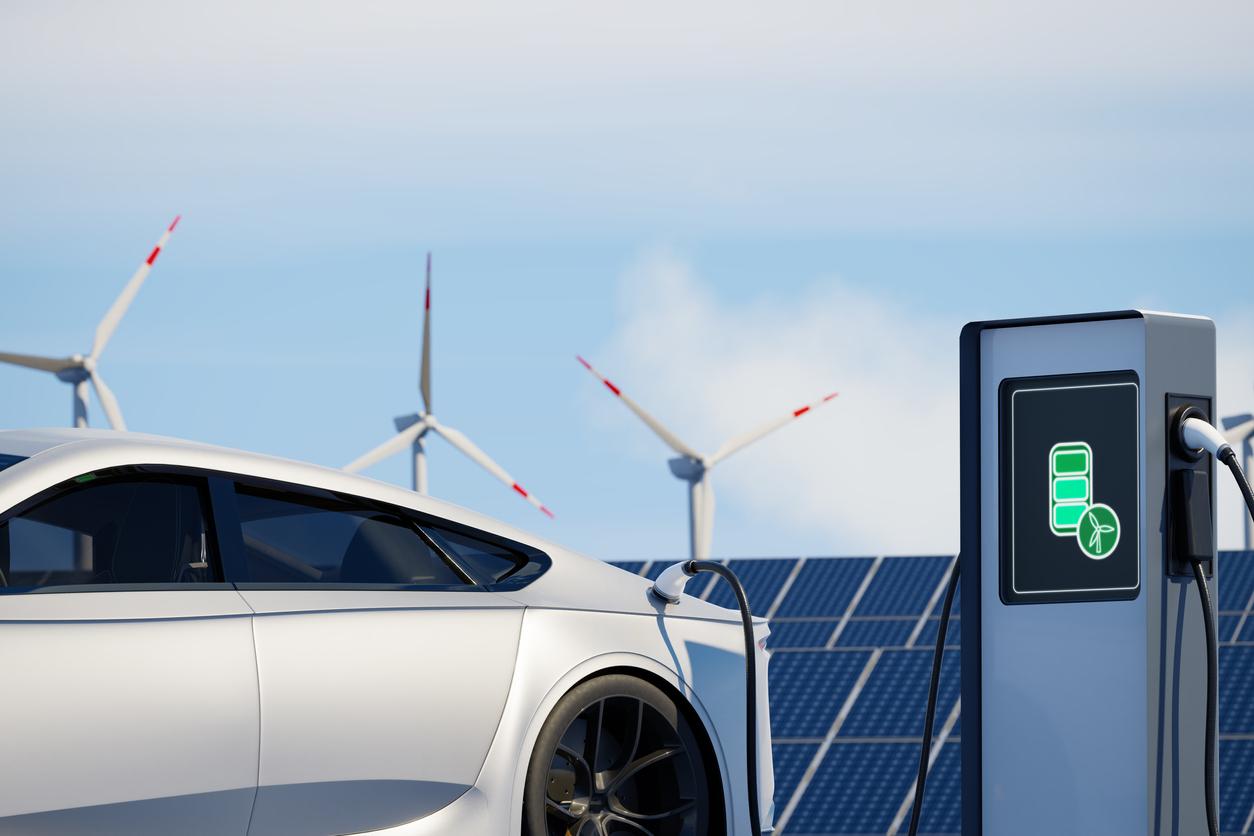Les constructeurs automobiles travaillent à atteindre la carboneutralité, mais l’élimination complète des émissions de carbone, la source de 15 % des émissions mondiales de gaz à effet de serre, nécessitera l’adhésion de tous les secteurs de la chaîne d’approvisionnement automobile. Cela comprend les concessionnaires automobiles, qui commencent à s’interroger sur leur rôle dans la transition énergétique.
« Il ne fait aucun doute que les équipementiers se soucient de la durabilité », a déclaré Ethan Goldberg, vice-président et chef de marché régional, Financement automobile, BMO Entreprises, dans un récent balado Sustainability Leaders. Les concessionnaires doivent également élaborer une stratégie de durabilité. »
Écoutez notre épisode d’environ 18 minutes
Ce balado est en anglais seulement.
Le balado Sustainability Leaders est accessible en direct sur tous les principaux réseaux, y compris Apple et Spotify.
BMO a récemment sondé plus de 130 propriétaires et hauts dirigeants de concessions à l’échelle du Canada et des États-Unis afin de mieux comprendre leur état de préparation en matière de réduction de l’empreinte carbone.
87 % des répondants ont déclaré avoir au moins une certaine compréhension des répercussions de la carboneutralité sur le secteur de l’automobile. Mais il serait possible de faire passer un peu plus de la moitié des personnes qui comprennent « assez bien » la situation à la catégorie « très bien ».
Même si certains concessionnaires automobiles ont pris des mesures pour atteindre la carboneutralité, d’autres « n’ont pas réfléchi aux mesures à prendre dans leur propre entreprise », même lorsqu’ils étaient au courant des problèmes de durabilité, a déclaré Ghram Debes, premier directeur général et chef, Financement automobile, É.-U.
Électrification et décarbonisation du secteur de l’automobile
Parmi les résultats du sondage, 39 % des concessionnaires ont déclaré avoir des plans en place pour réduire leur empreinte carbone au cours des 18 prochains mois. Dans certains cas, cela signifiait d’optimiser les aires de service pour soutenir les réparations de véhicules électriques ou l’installation de bornes de recharge. Dans d’autres, il s’agissait de rénover leurs magasins en y apportant des améliorations en matière d’énergies renouvelables ou d’économies d’énergie, comme des panneaux solaires sur les toits, un éclairage à DEL ou des systèmes de chauffage et de ventilation à haut rendement.
Les concessionnaires avaient toutefois des réserves. La décarbonisation de leurs activités nécessitera des investissements supplémentaires. Les concessionnaires canadiens, en particulier, craignaient que le passage à la vente de véhicules électriques (VE) ne nuise aux profits en raison de la baisse potentielle des possibilités de services après-vente traditionnels, a souligné Andre Salvi, premier vice-président et chef, Financement automobile de BMO. Les répondants des deux pays avaient des questions sur la capacité des consommateurs à se permettre des VE.
« Les équipementiers sont en première ligne. Ils s’efforcent de mettre le plus grand nombre possible de VE sur les routes. Nos concessionnaires sont ceux qui font de l’éducation et du marketing, a déclaré M. Debes. Le secteur est déterminé à changer la façon dont vous vendez des véhicules afin de répondre à la demande des consommateurs et de faciliter l’expérience. Les équipementiers ouvrent la voie en demandant que la durabilité soit intégrée au modèle du concessionnaire au fil du temps. »
Les clients mènent le bal
Ayant récemment participé à l’EV & Charging Expo à Toronto, M. Goldberg a souligné que les premiers utilisateurs parmi les clients des concessionnaires automobiles qui pourraient ouvrir la voie aux consommateurs en général pourraient être les exploitants de parcs de véhicules et les entreprises de logistique de transport.
« Il y a beaucoup de technologies qui arrivent maintenant au premier plan et qui fourniront cette solution du dernier kilomètre qui permettra d’offrir un véhicule à zéro émission pour faciliter la livraison de biens et réduire l’empreinte carbone », a-t-il dit. Les concessionnaires vendent non seulement des voitures aux exploitants de parcs de véhicules, mais s’occupent également du financement de ces derniers, ce qui donne l’occasion de prendre une longueur d’avance sur la décarbonisation. M. Goldberg a également fait remarquer que les investissements verts dans les magasins et les biens immobiliers produiraient des dividendes sous forme d’économies d’énergie et de crédits de carbone potentiels.
« Les concessionnaires sont un pilier de la collectivité, en particulier dans les petites collectivités, explique-t-il. Ils devraient chercher à promouvoir leurs stratégies de durabilité environnementale auprès de l’ensemble de la collectivité. Cela pourrait attirer une clientèle plus sensible à la préservation de notre environnement. »
Respect des normes de la chaîne d’approvisionnement
Les constructeurs automobiles ne seront peut-être pas les seuls à exercer une pression sur les concessionnaires pour qu’ils atteignent la carboneutralité. Christine VanDerwill, directrice, Partenariats, BMO Radicle, a observé qu’un plus grand nombre de sociétés cotées en bourse du Fortune 500 adhèrent généralement au Carbon Disclosure Project et à la Science-Based Targets Initiative. Les programmes de combustibles à faibles émissions de carbone permettent à une entreprise d’obtenir des crédits de carbone à mesure qu’elle électrifie son parc de véhicules et investit dans des infrastructures de recharge pour VE.
« De plus en plus de mandats seront transmis par l’intermédiaire des chaînes d’approvisionnement, où les entreprises au sein de ces chaînes d’approvisionnement auront le mandat de produire des rapports sur leurs émissions conformément aux normes internationales », a-t-elle déclaré.
La modératrice de la table ronde, Katie Shuter, conseillère principale à l’Institut pour le climat de BMO, a souligné que les services-conseils de BMO Radicle aux clients pour les aider à atteindre leurs objectifs de réduction des émissions et de durabilité. « BMO a vraiment l’ambition climatique d’être le principal partenaire de ses clients dans la transition vers un monde carboneutre », a ajouté Mme VanDerwill.
